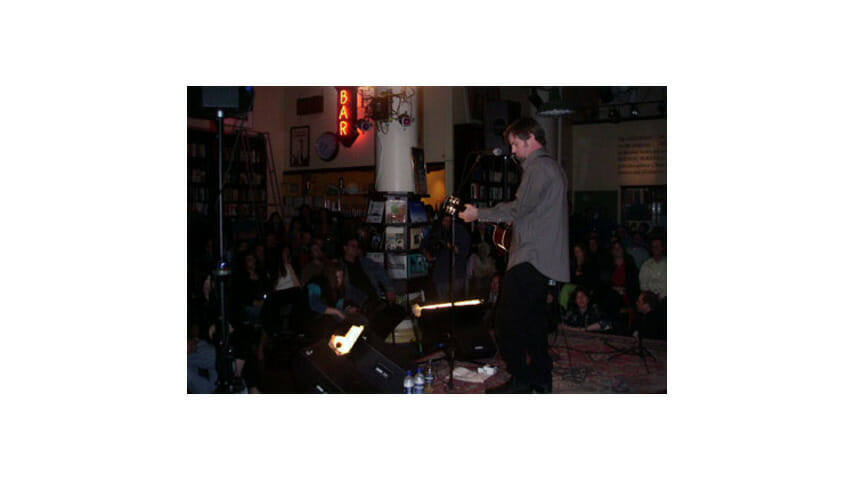Jay Farrar

When you walk through the SoHo (South of Houston Street) area of New York City at night, you can’t help but feel like you’ve stepped onto a movie set: dimly lit, cobblestone streets lead you past lucid plate-glass windows of art studios, flanked by high-curbed sidewalks, everything grey, white and black. Behind one of these windows is the site of tonight’s concert, a soft-lit bookstore, complete with winding staircases leading to pitch-black darkness and row after row of multi-volume works. Toward the back of the room is the stage, where singer/songwriter and six-string believer Jay Farrar is making his way, stare fixed upon the ground, ready to play.
-

-

-

-

-

-

-

-

-

-

-

-

-

-

-

-

-

-

-

-

-

-

-

-

-

-

-

-

-

-

-

-

-

-

-

-

-

-

-

-








































